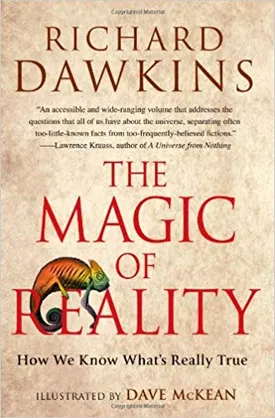Richard Dawkins
Richard Dawkins is one of the world’s most respected and influential scientists. He has written numerous books, most famously ‘The Selfish Gene’ and ‘The God Delusion’. His books have become widely cited and studied around the world, making him perhaps the most famous evolutionary biologist since Charles Darwin. Here’s a breakdown of his life and career.
Early life
Richard Dawkins was born in 1941 in Nairobi, Kenya, to two professional British parents. In his teenage years, he moved to Oxford, England, where he attended the famous Oxford University, first majoring in zoology, then eventually in ethology, or the study of behavior.
Scientific career
After graduating from Oxford, Dawkins earned an Advanced Research Fellowship at the University of California before returning to Oxford to join the Faculty of Zoology. During this time, he wrote his first book, ‘The Selfish Gene’, which argued that genes have evolved over time in order to maximize their own reproductive success — regardless of the consequences for the organism or the species as a whole. This groundbreaking book was widely accepted as a classic among biologists and helped to propel Dawkins to international fame.
In addition to writing books, Dawkins has lectured on evolutionary biology, philosophy, and evolutionary psychology for more than four decades in some of the world’s leading universities. And in 2000, he was appointed the first Charles Simonyi Professor of the Public Understanding of Science at Oxford, a prestigious position that gave him a platform to communicate science to a wider audience.
Evolutionary works
Throughout his career, Dawkins has taken a strong stance on the need for science to receive proper funding and public education. His most famous works include ‘The Blind Watchmaker’, which uses Richard’s famous style of vivid analogies and storytelling to explain how natural selection works; ‘The Extended Phenotype’, which presents evolutionary theory in terms of genes and their effects on the environment; ‘Unweaving the Rainbow’, which explores the rationality behind science and the role of faith; and ‘The God Delusion’, which critiques the role of religion in society and calls for atheism as a more logical, evidence-based belief system.
Awards and recognition
Dawkins has earned numerous awards throughout his career, including the prestigious International Cosmos Prize in 2009 in recognition of his research and writing. He has also been awarded the Award for Public Understanding of Science from the UK’s government-funded Science Council, as well as a fellowship in the Royal Society. In addition, he has been nominated for the prestigious Darwin Award for Outstanding Achievement in Evolutionary Biology.
Final thoughts
Richard Dawkins has made a tremendous contribution to science, both through his many books and through his public lectures and activism. His works have inspired countless generations of scientists to push the boundaries of our knowledge and to think critically about the world around them. His unique approach to evolutionary biology has made him a truly iconic figure in the fields of science and philosophy.




